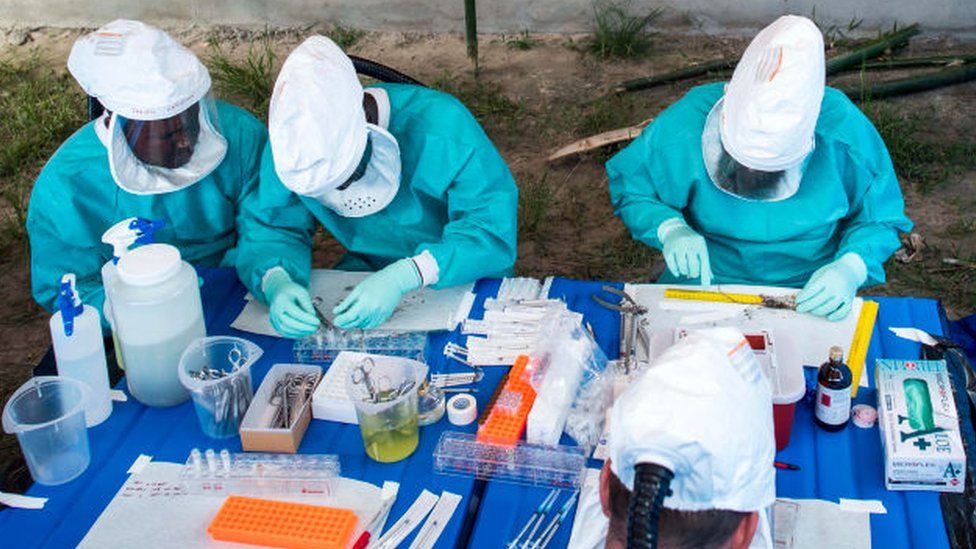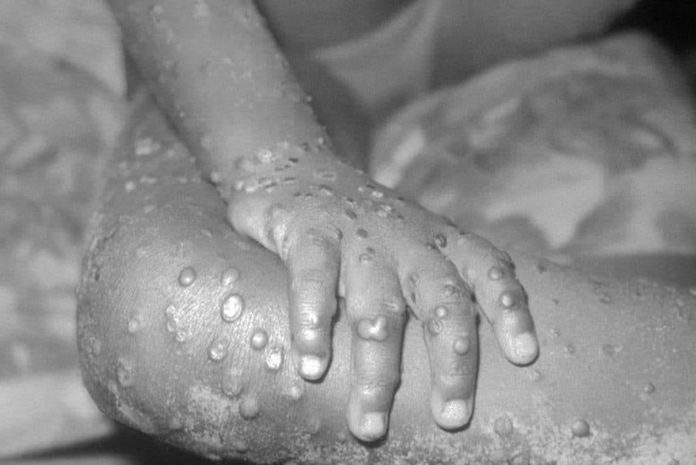The World Health Organization (WHO) has declared mpox a public health emergency of international concern. Cases of mpox — previously called monkeypox — have been surging in the Democratic Republic of Congo.
In recent weeks, cases have appeared in nearby African countries, including several that have never reported mpox cases before.
“What we’re seeing is tip of the iceberg” because of weaknesses in the surveillance system, says Dr. Dimie Ogoina, the chair of the emergency committee convened by WHO and an infectious disease physician at Niger Delta University in Nigeria.
“This is something that should concern us all,” says WHO’s director-general, Tedros Adhanom Ghebreyesus.
The WHO has declared seven public health emergencies in the past, including one for mpox in 2022. The type of mpox that is circulating now is known to be more deadly than the type that swept the globe two years ago.
“We need to be … aggressive”
On Tuesday, the Africa Centres for Disease Control and Prevention took a similar step, declaring mpox an emergency.
Africa CDC has never done anything like this before.
“We can no longer be reactive — we need to be proactive and aggressive,” says Dr. Jean Kaseya, director-general of Africa CDC. “This is a fight for all Africans and we will fight it together.”
In the Democratic Republic of Congo (DRC), children make up the majority of the 14,000 reported cases and 511 deaths so far in 2024. Those numbers roughly match the number of cases reported in all of last year in the country — and they dwarf the mpox numbers reported in 2022.
“[The declaration] is a wake-up call for the world that urgent action is needed,” said Dr. Nicole Lurie, executive director of emergency preparedness and response at the Coalition for Epidemic Preparedness Innovations, headquartered in Norway, in a statement.
Dr. Boghuma Titanji, assistant professor of medicine at Emory University, said in a statement that the declaration is “a crucial step toward enhancing coordination among African countries to address the ongoing mpox outbreak.”
Sponsor Message
Why Africa is so worried
In the last couple of weeks, there has been a new and alarming development. Mpox has been detected in countries that have never previously identified cases. About 50 confirmed cases and more suspected cases have been reported in Burundi, Kenya, Rwanda and Uganda, according to World Health Organization officials.
It is with past health emergencies in mind that Africa CDC is trying to move quickly and garner international support. “We were abandoned during COVID time, and today we don’t want to be again abandoned. We don’t want to be dependent. We are taking appropriate action,” says Kaseya, noting that declaring a public health emergency is a new power that the African Union gave to the agency in 2023. Kaseya says that the agency sought input from more than 600 experts and that the scientific committee that was convened to consider the mpox situation unanimously recommended the emergency declaration.
Kaseya says it’s particularly concerning that about 70% of cases in the DRC are in children under 18. “This one is a major alarm for the world,” he says. “We are losing the youth in Africa.”
Experts say the higher number of cases and deaths among children is likely because they don’t have protection from the smallpox vaccine — which was discontinued after that related virus was eliminated in 1980 — and because about 40% of children in the region are malnourished, making it harder for their bodies to fight off the virus.
The U.S. response
There’s concern about mpox in the U.S. as well. The U.S. Centers for Disease Control and Prevention issued an mpox alert last week. While the risk to the general population in the U.S. remains low, Christina Hutson, senior science adviser at the U.S. CDC, says it’s important for clinicians, health departments and travelers to be aware of the virus’s spread in Africa and be vigilant about symptoms.

In addition, last week the U.S. pledged nearly $424 million to help with what the U.S. Agency for International Development calls an “ongoing catastrophe” in the DRC, plus $10 million to respond to mpox and 50,000 mpox vaccine doses.
While Japan, the U.S., the European Union and vaccine manufacturers are working on vaccine donations, Africa CDC says the need far outstrips what’s in the pipeline.
Reporting by National Public Radio






















